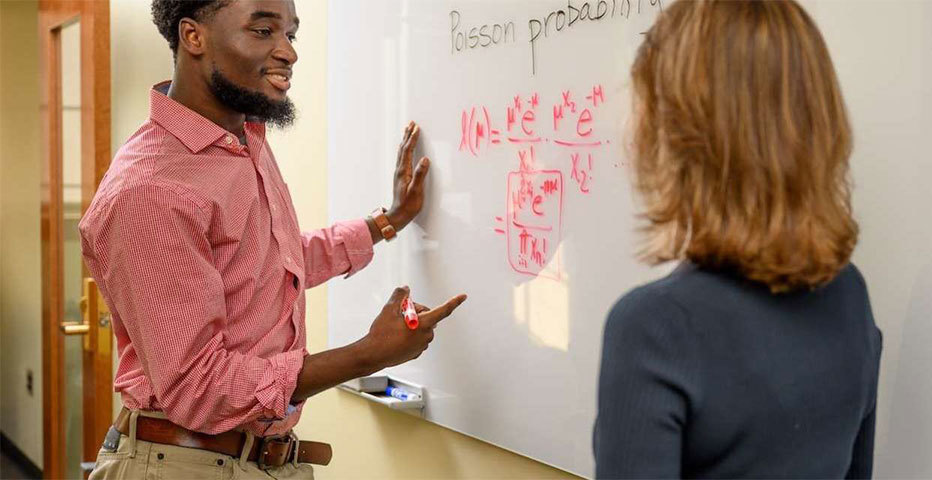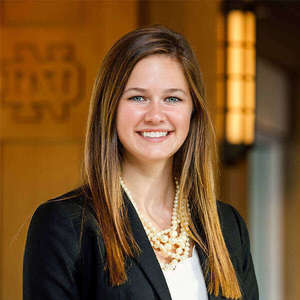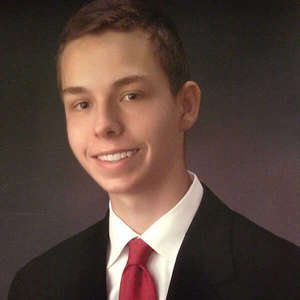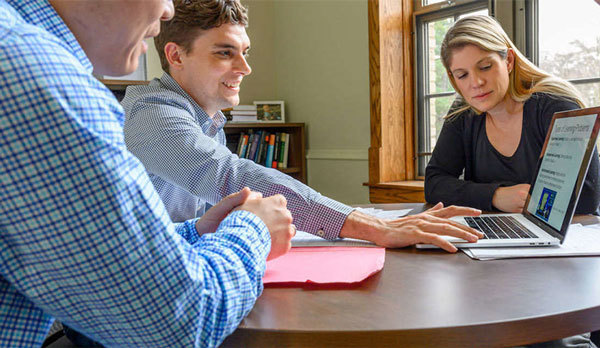
In the College of Science, among the natural disciplines of biology, chemistry, and physics, the Department of Applied and Computational Mathematics and Statistics (ACMS) stands out as a hybrid field of study distinct from the other sciences. It attracts students interested in math, computer science, data analysis, and statistics, and combines these subject areas into an interdisciplinary degree program.
ACMS, which is available both as a primary and supplementary major, focuses on developing and implementing mathematical models with real-world implications. Students in the major have the opportunity to work with bioinformatics, applied equations, scientific computing, and more unique fields during their undergraduate years.
We spoke to three current students about their experiences in ACMS and why they think students might be interested in declaring the major.

Leah Grabowski ’21
ACMS, Psychology

Mengchen Huang ’22
ACMS, Economics

John Keenan ’23
ACMS
In a few sentences, how would you describe ACMS?
Leah Grabowski: ACMS takes the ideas of math and applies them to real life situations, like it says in the name. Instead of asking why math works the way it does, we ask why the world works the way it does, and we do that by using what we know on large data sets. It also involves a lot of statistics and computing, which are helpful in any profession.
Mengchen Huang: It’s a combination of math, computing, and statistics, and it has a biological sciences concentration that I’m doing, which is really helpful if you want to go into biotechnology or the healthcare industry.
John Keenan: It’s similar to math but less theory and less proofs, and more applied stuff. It’s broader-ranging than math, too. We do computing in C++ and R that you don’t do in a general math major–it’s math in a practical context.
Why did you choose your major?
LG: I’ve always been a huge math person. Even back in elementary school, I liked numbers and solving problems and I had always wanted to do something with that. When I came to Notre Dame, my brother told me about a math major that didn’t involve proofs. I like the idea of doing math but doing more than just solving equations, and applying it to real life problems.
MH: There’s a lot of directions you can go with it. I’m really interested in data science and biological science, and it has the statistics background to help with what I want to do.
JK: I actually applied to engineering but switched before I got here. I knew I wanted something in STEM, and when I looked more into ACMS, it seemed like it would give me a good background. I like the applied aspect, and it’s cool to do computing classes and not just theoretical math. You’re also not necessarily locked into one field.
What are some classes you’ve taken in ACMS that have stood out for you?
LG: I’ve taken a few project-based classes where you get to spearhead your own analysis from start to finish. We start with a data set and work through figuring out and predicting the best methods to create an algorithm to find a certain factor that we’re looking for.
MH: I took Artificial Neural Networks, which is about machine learning, and the final project was really interesting and helped integrate what we’d learned. I liked science computing as well–it had some challenging problem sets that you had to come up with algorithms for.
JK: I’ve had to take a lot of the requirements, but I really enjoyed probability last year. It was my first ACMS class and it was really cool because I’m interested in doing actuarial work and that class gave insight into how that works. It was new math for me and had very clear applications.
What do you hope to do with your degree after graduation?
LG: I just signed my return offer to do healthcare consulting at a company I interned for this past summer. During my internship, I saw how ACMS skills applied. It taught me how to learn and think critically about data sets.
MH: I want to go into data science, and I did an internship with Dr. Alan Huebner where we worked on data from Notre Dame sports teams. I’m now in the Silicon Valley semester program doing an internship with a healthcare startup. So many jobs have applied math as a requirement.
JK: I’m interested in actuarial work, but I’m taking more computing and data science classes. I’m trying not to lock myself in. It’s a really flexible major.
What makes ACMS special? Why should incoming students consider declaring ACMS?
LG: All of my ACMS classes are small enough that I know my professors well and can take advantage of office hours. The professors don’t want you to struggle; they want to help you know what you’re doing and why you’re doing it.
MH: There are a lot of research opportunities in the major. I talked to one professor who does computational biology–I wasn’t even in her class–and asked her if I could work with her. She gave me books to read and problem sets to work on and I’d come in and talk to her every week. The faculty will really mentor you.
JK: One thing I will say is that there are not a ton of kids who are ACMS only. There’s a supplementary major option [which requires eight fewer credits than the primary major] so there are a lot of business and economics students who take ACMS classes as well. It makes it really easy for kids who are interested in math or statistics to continue on that path. There’s plenty of room to take the major in different directions.

Read Further:
- Learn more about the ACMS major.
- Check out some ACMS undergraduate research opportunities.
- Meet another ACMS student: Senior ACMS Major Finds Passion in Patient Care